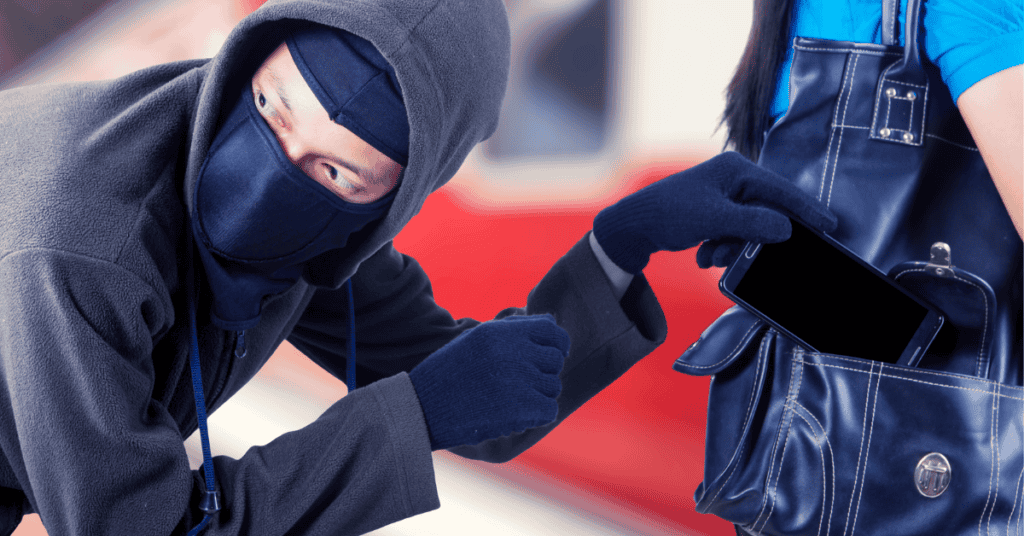Your SIM (Subscriber Identity/Identification Module) card is your pass to and personal identity on a mobile network.
The card carries the phone number that others can dial to reach you on your cell phone. It can also store personal data such as your contacts, text messages, service codes, and emergency numbers.
If removed, your phone won’t be able to connect to the network- rendering your mobile device largely useless!
However, you may also find at times that although your SIM card might be intact in your phone, the device still does not receive a network signal.
Or, maybe the case is that your phone is getting a network signal- but you can neither receive nor make calls!
Both scenarios leave you in the same frustrating situation: You can’t use your phone!
All that might get you wondering:
“Why is my SIM card blocked from network use?”
There are a number of reasons that may be responsible for this problem, and we’ll be looking at these in more detail in this article.
Briefly: Your SIM card comes with two layers of security to ensure that only authorized people have access to its contents.
The first security layer is the PIN (Personal Identification Number).
For most Mobile Network operators, a PIN is a four-digit number, which is by default ‘0000’ or ‘1111’.
Once you purchase the SIM card, you can change this default PIN to any four digits number of your choice.
Each time your phone is switched off and turned back on, the phone will demand that you enter the PIN before the device is accessible.
The second security layer is the PUK, or Personal Unblocking Key.
Unlike the PIN, the PUK is unique to each SIM card- so you won’t be able to reset it.
It is usually eight digits long. The SIM card holder contains both the PIN and PUK; they can typically be found on the card’s reverse side.
The question is: How do these two things relate to a SIM card being blocked?
Why Would Your Mobile Network Operator Block Your SIM Card From Network Use With These Security Measures In Place?

In some cases, blocking your SIM card is a result of a safety measure from the mobile network operator. This is especially true when PIN and PUK interplay to ensure the security of your SIM card.
The Mobile Network Operator will block your SIM card from network use if you input the wrong PIN three times consecutively.
They take this action based on the assumption that your phone is probably in the wrong hands. Why would the rightful owner enter the incorrect PIN three times, back to back?
At this point, you can still salvage the situation if you can provide the PUK. Once you input the eight-digit code, the mobile network operators will unblock your SIM card.
However, if the wrong PUK is input too many times- usually around ten- the MNO disables your SIM card permanently.
Why Would A Phone Be Blocked From Network Use?
In some cases, the problem may be with the phone and not the SIM card.
It is possible that either the phone is blocked, or has been locked to a particular network.
Let’s start with a locked phone. If you purchased your phone from a network provider, the device might be set so it does not work on any other network.
This means that the network provider that sold the phone to you has locked it to its network.
As a result, you’ll find that a SIM card from another network will not work with the phone!
However, you can legally unlock phones locked to a network if you wish to. Many applications and websites on the internet are dedicated to doing this for you.
Blocked phones, on the other hand, are a different situation altogether.
When MNO blocks a phone, it means the device has been network-blacklisted. No SIM card you insert will work on a blocked phone!
Technically speaking, it’s somewhat similar to having a SIM card blocked from network use.
Here are some reasons as to why a phone may be blocked from network use:
Missing Or Stolen

The first reason involves the authorities.
If you have lost your phone or if it has been stolen, the network provider will block your phone upon notification.
Your network provider uses the phone IMEI (International Mobile Equipment Identity) to block the device across all the networks in the country.
To avoid the trouble that comes with buying a blocked device, make sure you do a background check on the device and on the company you are purchasing it from. There are many websites out there where you can check the status of a second-hand phone.
Failure To Pay Bills

The second reason operators may have a phone blocked from network use is when a subscriber fails to pay their contract bill.
Network providers can blacklist a phone subject to an expired contract if the subscriber has failed to pay the due bill.
If you are the original buyer, you most likely saw this reason coming. You will already be aware that you missed payments, and you will know the contract has expired.
However, there may be a mix-up here if you are a second-hand owner.
Buying a second-hand device can be risky! You have to be careful if you purchase one, as fraudsters may sell phones that are soon to be blacklisted.
Ransomware

In this instance, your phone is not the one at fault!
It is possible that it is ransomware (a virus that invades a phone) that is generating the (fake) message you are seeing.
Hackers use it to extort money from people, feeding on the fear of losing their phone service.
The malware is irritating and frightening, but you can use an antivirus application or service to remove it quite easily.
In a practical sense, your phone can still receive cellular signals, and you can still make calls and send messages even when your device is infected.
What Do I Do When My Phone Is Blocked From Network Use?

Below we detail the steps that you should take to restore your blocked phone to the network.
What you’ll need to do will depend on the reason why they blocked your phone in the first place!
The simplest fix is when the network provider has blocked your phone in error.
You simply need to contact the network provider and prove your case. You can either call the customer care service hotline, or send them an email to do so.
Where you mistakenly buy a stolen device, your case is unfortunately pretty hopeless.
When network operators block stolen phones, it is always at the request of the original owner.
This means only these owners, who must have proved their ownership, can request an unblocking of the phone.
Therefore, if the whole problem is a mix-up from the original owner’s end, you will have to contact them.
Another issue is that only the network that blacklisted the phone in the first place can unblock it.
Every Mobile Network Operator has access to a blacklist database and can condemn phones into it.
If the phone owner has proof to get it unlisted, only the same network operator which added it to the blacklist can remove it from that list.
If a device has been blocked because of failure to pay the contract bill, simply arrange to pay what you owe!
Once that is done, the network will instantly unblock your device.
However, if you have unwittingly purchased a contract phone with indebtedness, you may have to report the seller to the police. After all, the network contract says you cannot sell the device until you pay the network what you owe them.
So, selling a phone in this state is illegal and constitutes a criminal act.
Lastly, if you are dealing with ‘Your phone has been locked up’ ransomware, a good antivirus is your best bet.
It will be the easiest and quickest way to wipe that irritating nuisance of a virus off your phone!
In Conclusion
You do not need to fret too much over a blocked SIM card.
As detailed above, you can restore a SIM card blocked from network use if you follow the proper steps!
At the most basic level, all you have to do is enter the correct PIN to get back on the network.
However, do be careful as if you enter the wrong PIN multiple times, the device will prompt you to enter the PUK.
Ten incorrect entries of the PUK will lead to a permanently locked SIM card, at which point you will need to replace the card.
Only the Mobile Network Operator can legally unlock a blocked phone- if the SIM card has no issue, that is!
